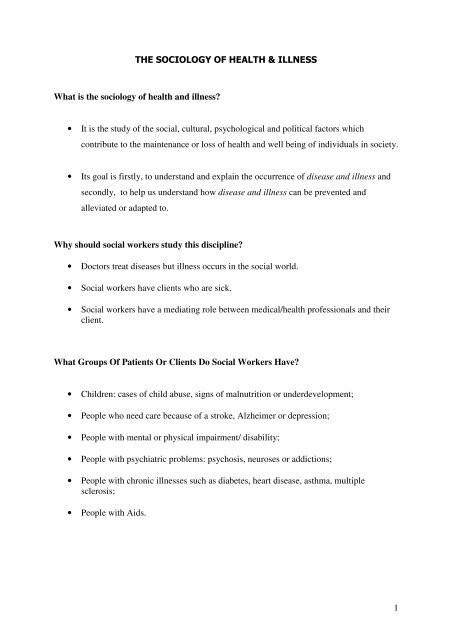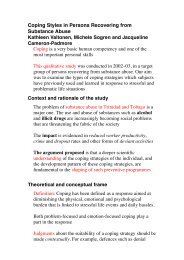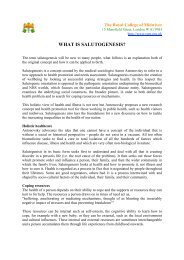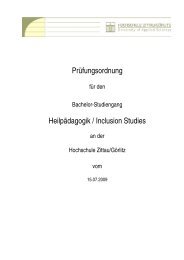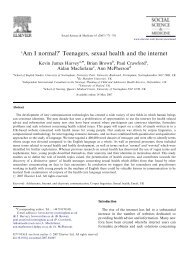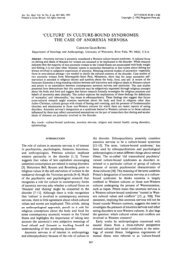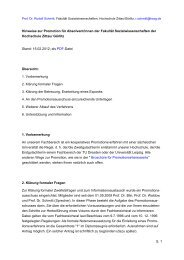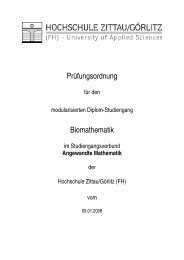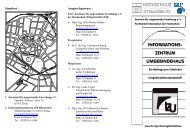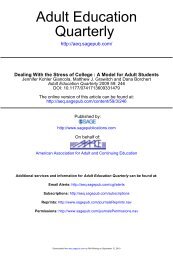1 THE SOCIOLOGY OF HEALTH & ILLNESS What is the sociology ...
1 THE SOCIOLOGY OF HEALTH & ILLNESS What is the sociology ...
1 THE SOCIOLOGY OF HEALTH & ILLNESS What is the sociology ...
You also want an ePaper? Increase the reach of your titles
YUMPU automatically turns print PDFs into web optimized ePapers that Google loves.
<strong>THE</strong> <strong>SOCIOLOGY</strong> <strong>OF</strong> <strong>HEALTH</strong> & <strong>ILLNESS</strong><br />
<strong>What</strong> <strong>is</strong> <strong>the</strong> <strong>sociology</strong> of health and illness?<br />
• It <strong>is</strong> <strong>the</strong> study of <strong>the</strong> social, cultural, psychological and political factors which<br />
contribute to <strong>the</strong> maintenance or loss of health and well being of individuals in society.<br />
• Its goal <strong>is</strong> firstly, to understand and explain <strong>the</strong> occurrence of d<strong>is</strong>ease and illness and<br />
secondly, to help us understand how d<strong>is</strong>ease and illness can be prevented and<br />
alleviated or adapted to.<br />
Why should social workers study th<strong>is</strong> d<strong>is</strong>cipline?<br />
• Doctors treat d<strong>is</strong>eases but illness occurs in <strong>the</strong> social world.<br />
• Social workers have clients who are sick.<br />
• Social workers have a mediating role between medical/health professionals and <strong>the</strong>ir<br />
client.<br />
<strong>What</strong> Groups Of Patients Or Clients Do Social Workers Have?<br />
• Children: cases of child abuse, signs of malnutrition or underdevelopment;<br />
• People who need care because of a stroke, Alzheimer or depression;<br />
• People with mental or physical impairment/ d<strong>is</strong>ability;<br />
• People with psychiatric problems: psychos<strong>is</strong>, neuroses or addictions;<br />
• People with chronic illnesses such as diabetes, heart d<strong>is</strong>ease, asthma, multiple<br />
scleros<strong>is</strong>;<br />
• People with Aids.<br />
1
The Biomedical & Social Models of Illness and D<strong>is</strong>ease<br />
Assumptions of Bio-medicine and a Sociological Critique:<br />
1. Bio-medicine <strong>is</strong> based on a mind-body dual<strong>is</strong>m - <strong>the</strong> mind and body can be treated<br />
separately.<br />
Critique:<br />
• Humans are embodied – <strong>the</strong>y are and have bodies.<br />
• The whole person should be considered and cared for.<br />
2. Bio-medicine <strong>is</strong> based on a mechanical model - doctors try to fix dysfunctional bodies and<br />
solve medical problems with technologies such as drugs or machinery.<br />
Critique<br />
• Th<strong>is</strong> approach <strong>is</strong> reduction<strong>is</strong>t as explanations of d<strong>is</strong>ease and its solutions are sought<br />
within biological, physical and technological contexts.<br />
• Social and psychological factors are neglected.<br />
3. Bio-medicine <strong>is</strong> based on a “ doctrine of specific aetiology”- it presumes d<strong>is</strong>eases are often<br />
caused by a specific agent, such as a parasite, virus, bacterium or gene.<br />
Critique:<br />
• Health, d<strong>is</strong>ease and illness are not just related to biological and physical changes, but<br />
are also influenced and shaped by <strong>the</strong> wider socio-economic order.<br />
• Patterns of d<strong>is</strong>ease usually correspond to <strong>the</strong> d<strong>is</strong>tribution of power and resources<br />
throughout society so understanding power relations and social inequalities are<br />
important.<br />
4. Medical knowledge <strong>is</strong> presumed to be objective and neutral It <strong>is</strong> based on rational empirical<br />
evidence, and so it <strong>is</strong> d<strong>is</strong>tinct from <strong>the</strong> social context in which such knowledge <strong>is</strong> produced.<br />
Critique:<br />
• Medical knowledge can never be objective – like all scientific knowledge it <strong>is</strong><br />
produced in a specific context.<br />
• Medical practitioners have to be taught how to “see” and “interpret” <strong>the</strong> body.<br />
• <strong>What</strong> doctors learn from medical texts and from within <strong>the</strong> context of <strong>the</strong> teaching<br />
hospital <strong>is</strong> only one of many ways in which <strong>the</strong> body might be “seen” or understood.<br />
2


